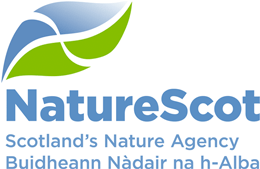02 November, 2015
SNH outlines volunteer action in drive to manage stoats on Orkney
Further action to tackle the
problem of non-native stoats on Orkney has been outlined by Scottish Natural
Heritage (SNH).
A report commissioned by SNH
highlighted the impact stoats have on the ecology of Orkney threatening native
wildlife. The presence of the non-native
mammal particularly affects Orkney vole, and the hen harriers and short-eared
owls which predate the vole.
Stoats are well-established
on the Orkney mainland and linked isles.
Sightings reported to SNH have increased from 290 in 2014 to 470 in 2015.
Eventual eradication of
stoats from Orkney is expected to cost at least £500,000 over four to five
years, and will require development of a large-scale partnership project. This is dependent on external funding.
Priority now is control of numbers
in the parts of Orkney in which stoats are established and to minimise risk of
spread to other islands in Orkney, for example in shipments of straw and hay
for overwintering cattle. A single
pregnant female has potential to enable stoats to become established.
Graham Neville, Northern
Isles operations manager, said: “We are committed to tackling the issue of
stoats in Orkney and are setting up a full-scale eradication project with a
view to bid for external funding.
“Our priority is the control of
the population and distribution of stoats in Orkney. Everyone can be assured that animal welfare
is our top priority and is central to the project. Any animal caught will be handled and
dispatched in a humane and legal manner.
“And we are extremely grateful
for the wealth of expertise that our volunteers are able to offer to assist
with this.”
Rachel Cartwright has been
appointed to the Orkney stoat project team as co-ordinator of volunteer
trappers’ work. This dedicated team of
trappers is working hard to limit the threat posed by stoats to wildlife and
domestic poultry.
Rachel has contacted Orkney locals
who have expressed an interest in assisting with this vital work. She said: “We will be training volunteers and
supplying them with equipment to trap and monitor the stoats and we are
delighted to announce an initial training session on November 12, 13 and 14.
“We will be training up to 50
volunteers initially and are especially keen to hear from people living on
Burray and South Ronaldsay to ensure good coverage across all areas of Orkney
where stoats have been sighted.
“There is a risk that stoats
may reach the other isles and it is important that residents are vigilant for
evidence of stoat activity, for example when hay or straw is being brought
in. We urgently need people across the islands
to join our volunteer trapping team to ensure that any stoat incursions to new
areas can be dealt with immediately.
“People can be assured that
we are grateful for the support from the Orkney community.”
Individuals interested in
volunteering to run traps or volunteering time in other ways should contact SNH
on 01856 886163. Orkney residents are asked to continue to report stoat
sightings on the ‘Stoats in Orkney’ Facebook page run by Martin Gray or phoning
SNH on 01856 886163.
Contact information
- Name
- SNH Media
- snhmedia@snh.gov.uk
NatureScot is Scotland's nature agency. We work to enhance our natural environment in Scotland and inspire everyone to care more about it. Our priority is a nature-rich future for Scotland and an effective response to the climate emergency. For more information, visit our website at www.nature.scot or follow us on X at https://x.com/NatureScot
’S e NatureScot buidheann nàdair na h-Alba. Bidh sinn a’ neartachadh àrainneachd na h-Alba agus a’ brosnachadh dhaoine gu barrachd suim a chur ann an nàdar. Tha e mar phrìomhachas againn gum bi nàdar na h-Alba beairteach agus gun dèilig sinn gu h-èifeachdach le èiginn na gnàth-shìde. Tha an tuilleadh fiosrachaidh aig www.nature.scot no air X aig https://x.com/NatureScot
